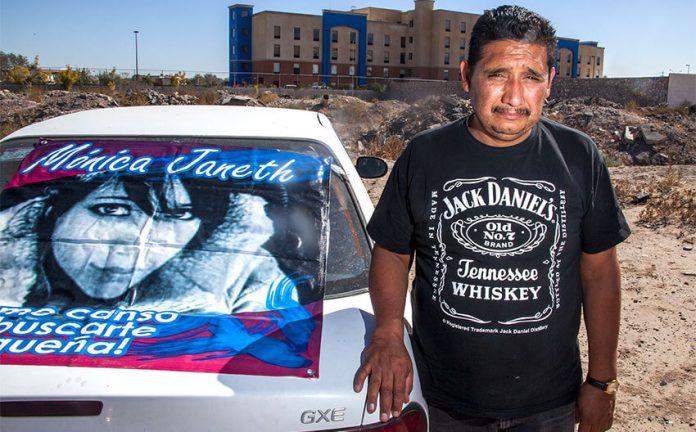Abductions of children, adolescents and women are on the rise, while impunity in missing person cases is “almost absolute,” the United Nations Committee on Enforced Disappearances (CED) said in a new report.
The committee published a report Tuesday partially based on the visit to Mexico last November by four of its members, including president Carmen Rosa Villa Quintana.
It said that males aged 15 to 40 are the most common victims of enforced disappearances, but added that official statistics show a “notable increase” in abductions of girls and boys starting from the age of 12 as well as adolescents and women.
That trend worsened during the coronavirus pandemic, the CED said, noting also that authorities have reported abductions for the purposes of human trafficking and sexual exploitation.
The committee said that organized crime groups are mainly responsible for disappearances but recognized that they sometimes collude with authorities or benefit from their “acquiescence or oversight.”
The Mexican state is not only responsible for enforced disappearances committed by public servants, but may also be involved in abductions perpetrated by criminal groups, the CED said.
The committee acknowledged that over 95,000 people were considered missing when the CED members were in Mexico in November, and observed that there is “almost absolute” impunity in such cases.
“According to information supplied by the state, to November 26, 2021, only a minimal percentage of the cases of disappearances of persons – between 2% and 6% – had been prosecuted,” the CED said.
It denounced a frequently passive attitude of law enforcement authorities in the face of an extremely serious problem, which includes abductions of human rights defenders, journalists and migrants.
“Impunity in Mexico is a structural trait that favors the reproduction and covering-up of enforced disappearances and places victims in danger,” the CED said.
It also expressed its “profound concern” for a “forensic crisis.”
“According to public data, more than 52,000 unidentified deceased people currently lie in common graves, facilities of forensic services, universities and [other locations],” the CED said.
“Despite its magnitude, this figure doesn’t include bodies not yet found nor thousands of fragments of human remains that families and search commissions collect weekly in clandestine graves.”
The committee made numerous recommendations to Mexican authorities to prevent and eradicate enforced disappearances.
It urged Mexico to strengthen search and investigation processes, provide adequate staff and funding to the National Search Commission and state-based commissions and ensure effective coordination between all authorities involved in the process of searching for missing persons and investigating such cases.
The committee also called on the state to provide compensation and support to victims of abduction and their family members, to remove legal obstacles that hinder justice and to attend to the forensic crisis, among other recommendations.
Prevention of enforced disappearances must be at the center of the national policy, the CED said.
“… The national policy of prevention and eradication must not be limited to operational prevention directed only at avoiding concrete threats of disappearances and other human rights violations,” it added.
“… It’s about stopping systematic violations and combatting impunity for enforced disappearances, both those of the present and those of the past.”
Mexico News Daily
